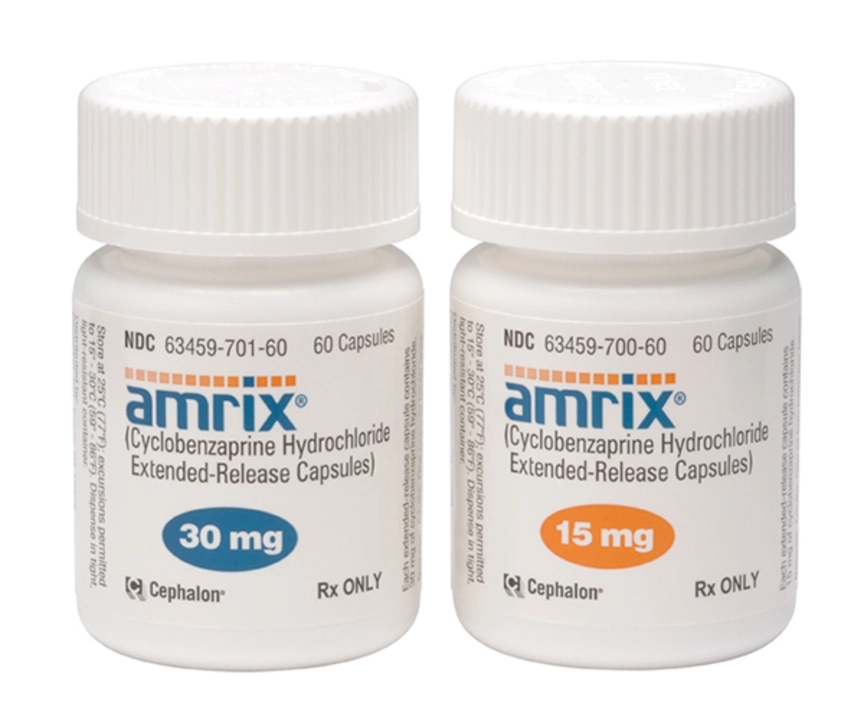Cyclobenzaprine HCL: What You Need to Know About This Muscle Relaxant
Cyclobenzaprine HCL is a prescription muscle relaxant doctors use to treat short-term muscle spasms after injury. It helps reduce pain and improve movement when used alongside rest and physical therapy. People often ask how it works, what side effects to expect, and how to use it safely. This page gives clear, practical answers so you can make smart choices.
How it works and common uses
Cyclobenzaprine acts on the central nervous system to calm muscle spasms rather than relaxing muscles directly. Typical use is for acute strains or sprains and it’s usually prescribed for two to three weeks. Doctors may start with a low dose like 5 mg taken at night and increase if needed. Long term use isn’t common because benefits drop and side effects can build up.
Dosage, side effects, and warnings
Follow your doctor’s directions exactly. Common side effects include drowsiness, dry mouth, and dizziness. Because it makes many people sleepy, avoid driving or operating heavy machinery until you know how it affects you. Don’t mix cyclobenzaprine with alcohol or sedatives—those combinations raise risk of dangerous breathing problems and extreme drowsiness. People with glaucoma, heart rhythm problems, or recent heart attack should not take it without medical advice.
Drug interactions matter. Cyclobenzaprine can interact with antidepressants like MAO inhibitors and certain SSRIs, increasing risk of serotonin syndrome. Tell your prescriber about all medications and supplements you take. If you feel high fever, muscle stiffness, confusion, or rapid heart rate after mixing medicines, seek urgent care—those can be signs of serious reactions.
Pregnancy and breastfeeding require a chat with your clinician. Evidence is limited, so prescribers weigh risks versus benefits for each person.
Missed dose rules are simple: take it only when prescribed and skip a missed dose if it’s close to the next one. Don’t double up to catch up. Stop gradually only if advised by your doctor; abrupt changes can cause problems for some people.
Thinking about buying online? Use caution. Only order from licensed pharmacies that require a valid prescription. Look for clear contact details, verified pharmacy seals, and reviews. Avoid bargain sites that ship without prescriptions—those products may be fake or unsafe.
Keep a pain and sleep diary while on cyclobenzaprine. Note when pain eases, side effects you notice, and how your sleep changes. Share that with your clinician at follow ups so they can fine tune treatment. If muscle weakness, irregular heartbeat, fainting, or severe allergic signs appear, stop the medicine and get immediate medical help.
Want more practical guides and pharmacy reviews? Browse related posts on this tag for buying tips, safety reviews, and alternative treatments that can help alongside or instead of cyclobenzaprine. Smart use and clear info make a big difference in recovery.
If you have questions about dosing, interactions, or side effects, ask your pharmacist or doctor. Keep prescriptions secure and never share medication. Small steps keep recovery safe and faster. Check this tag for more real advice.
How to safely taper off Cyclobenzaprine HCL
As a blogger, I've recently come across the topic of safely tapering off Cyclobenzaprine HCL, a muscle relaxant commonly prescribed for short-term use. To ensure a safe and smooth transition, it's crucial to consult with a healthcare professional before making any changes to your medication regime. They can provide a personalized tapering schedule based on factors like dosage and duration of use. During the process, it's important to monitor your body's response and report any adverse effects to your doctor. Remember, patience and open communication with your healthcare team are key to successfully tapering off Cyclobenzaprine HCL.






